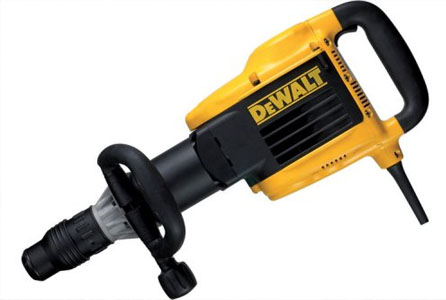
Demolition Drills
Contrary to common perception, drills have applications in many industries other than just being used to drill guide holes for nails during construction. There are many different types of demolition drills available on the market, each of which has a different use. They play a crucial role in demolition and can substantially increase productivity. The various types of drills available include wired drills, wireless ones and utility variants. All drills have limited capabilities so it's necessary to compare products to ascertain the type that you need.
Some models are compact in size, easy to use and maneuverable. While there are heavy equipment demolition drills that are roughly the size of farm tractors, there are smaller units that retain a significant ratio of power for their portability. Drills are available with extra power, which have been designed to drill deeper over a longer period of constant use. Some are heavy-duty tools with large heads and strong torque. Drills are machines of great use that can vastly increase productivity of an enterprise. In addition to their application in the demolition sector, they form the backbone of many heavy-duty industries where breakage of heavy material is a critical element of operations.
Earlier models of demolition drills s were very large and difficult to operate. With time and technological advancement, designs underwent innovative developments through research and led to the emergence of compact designs. Such drills, as the name suggests, are available in small-sizes without affecting their functionality and durability. These variants are also able to work within restrictive spaces. There are many brands that offer a variety of drills, some of which are both versatile in utility and cost effective.
Standard Applications and Comparable Features
In terms of capacity, compact drills come with similar features but vary in capacity from one brand to another. Attachments are readily available as are replacement parts in case something breaks. Standard applications include:
- Drilling
- Core cutting
- Heavy duty chiseling
- Renewal of joint removal and brickwork
- Demolition of stone, concrete and brickwork
- Laying tubes
Demolition drills are compared based on:
- Weight
- Vibration control
- Drilling power
- Design
Different Brands Offer Different Advantages
The operating mechanisms of demolition drills varies from one model to another and has undergone considerable change with time, creating the need for continuing education for laborers. Layout and placement of control panels in most drills are standard: button placement and LED readouts are always convenient. Compact drills may even be energy efficient: this makes a big difference for long projects! Prior to purchasing demolition drills, whether new or used, it’s advisable for a consumer to identify what they need. It’s essential to carefully research models by price, features and the cost of replacement parts. This’ll ensure that you get the most suitable drill for your projects.
Glancing through a demolition drills buyer guide will give you a basic idea of what to expect. A comparison of features offered and price points helps buyers determine between Bosch, Dewalt, SDS Max, or any other brands offering demolition drills.
